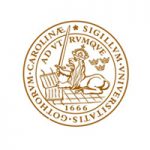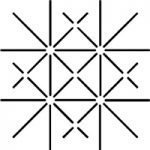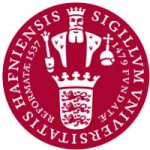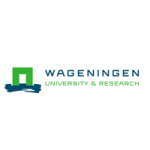项目介绍
Lund University was founded in 1666 and is repeatedly ranked among the world’s top universities. The University has around 47 000 students and more than 8 800 staff based in Lund, Helsingborg and Malmö. We are united in our efforts to understand, explain and improve our world and the human condition.
Lund University welcomes applicants with diverse backgrounds and experiences. We regard gender equality and diversity as a strength and an asset.
Subject description
Biology is the broad subject about all living things. It encompasses everything from processes at the molecular and cellular level to global processes at ecosystem level. The subject is divided into a range of sub-disciplines and specialisations. The PhD programme at the Department of Biology includes many of these specialisations, from molecular biology to applied ecology, from viruses and individual cells to evolutionary biology and global biodiversity. Taking on research studies at the Department of Biology generally means focusing on a delimited part of the research area of biology and may include field studies, experiments, theoretical studies, or a combination of these.
Work duties
The main duties of doctoral students are to devote themselves to their research studies which includes participating in research projects and third cycle courses. The work duties can also include teaching and other departmental duties, up to 20%.
The research project will investigate the genomic complexities of the toxin-producing cyanobacterium Microcystis, which causes harmful algal blooms in freshwaters around the world. The outstanding question is how cyanobacterial strain diversity, especially in relation to toxin-production, is generated and maintained in the natural environment. The prospective PhD student will primarily focus on genome rearrangements and dynamics by applying innovative bioinformatics approaches. Research tasks will also include performing controlled laboratory experiments as well as field studies in local lakes, in collaboration with other members of the research team. Downstream analytical analyses will include molecular biological methods. Finally, the doctoral studies will include statistical analyses, data interpretation, writing of manuscripts, as well as oral presentations.
Admission requirements
A person meets the general admission requirements for third-cycle courses and study programmes if he or she:
- has been awarded a second-cycle qualification, or
- has satisfied the requirements for courses comprising at least 240 credits of which at least 60 credits were awarded in the second cycle, or
- has acquired substantially equivalent knowledge in some other way in Sweden or abroad.
A person meets the specific admission requirements for third cycle studies in Biology if he or she has passed an independent project (for example a degree project) of at least 30 credits in a relevant subject and have good oral and written proficiency in English.
Additional requirements
- A MSc in Bioinformatics, Biology, or similar, with a minimum of 30 credits courses in bioinformatics
- Basic knowledge of ecology and evolution
- Basic experience of wet laboratory skills
- Excellent oral and written proficiency in English
- Demonstrated ability of independent work
In addition to the mandatory requirements, documented experience in the following areas will be considered as strong merits:
- Experience with genome assembly and annotation
- Experience in workflows and reproducible research
- Fluency in R or Python
- Experience in sequence analysis
- Experience of culturing of microbial organisms
- Experience performing laboratory experiments
Assessment criteria
Selection for third-cycle studies is based on the student’s potential to profit from such studies. The assessment of potential is made primarily on the basis of academic results from the first and second cycle. Special attention is paid to the following:
- Knowledge and skills relevant to the thesis project and the subject of study.
- An assessment of ability to work independently and to formulate and tackle research problems.
- Written and oral communication skills
- Other experience relevant to the third-cycle studies, for example professional experience.
Consideration will also be given to strong collaborative skills, problem-solving ability, drive and independence, and how the applicant, through his or her experience and skills, is deemed to have the abilities necessary for successfully completing the third cycle programe.
Terms of employment
Only those admitted to third cycle studies may be appointed to a doctoral studentship. Third cycle studies consist of full-time studies for 4 years. A doctoral studentship is a fixed-term employment of a maximum of 5 years (including 20% departmental duties). Doctoral studentships are regulated in the Higher Education Ordinance (1993:100), chapter 5, 1–7 §§.
Instructions on how to apply
Applications must be written in English and include:
- A cover letter stating the reasons why you are interested in the postgraduate education programme and in what way the research project corresponds to your interests and educational background.
- A short description (max 250 words) of a research question that intrigues you (does not have to be in this field of science).
- The application must also contain a CV, degree certificate or equivalent, and other documents you wish to be considered (grade transcripts, letters of recommendation, et cetera).
- Please also include at least two references with contact details (phone and email address).
联系方式
电话: +46 (0)46 222 0000相关项目推荐
KD博士实时收录全球顶尖院校的博士项目,总有一个项目等着你!






